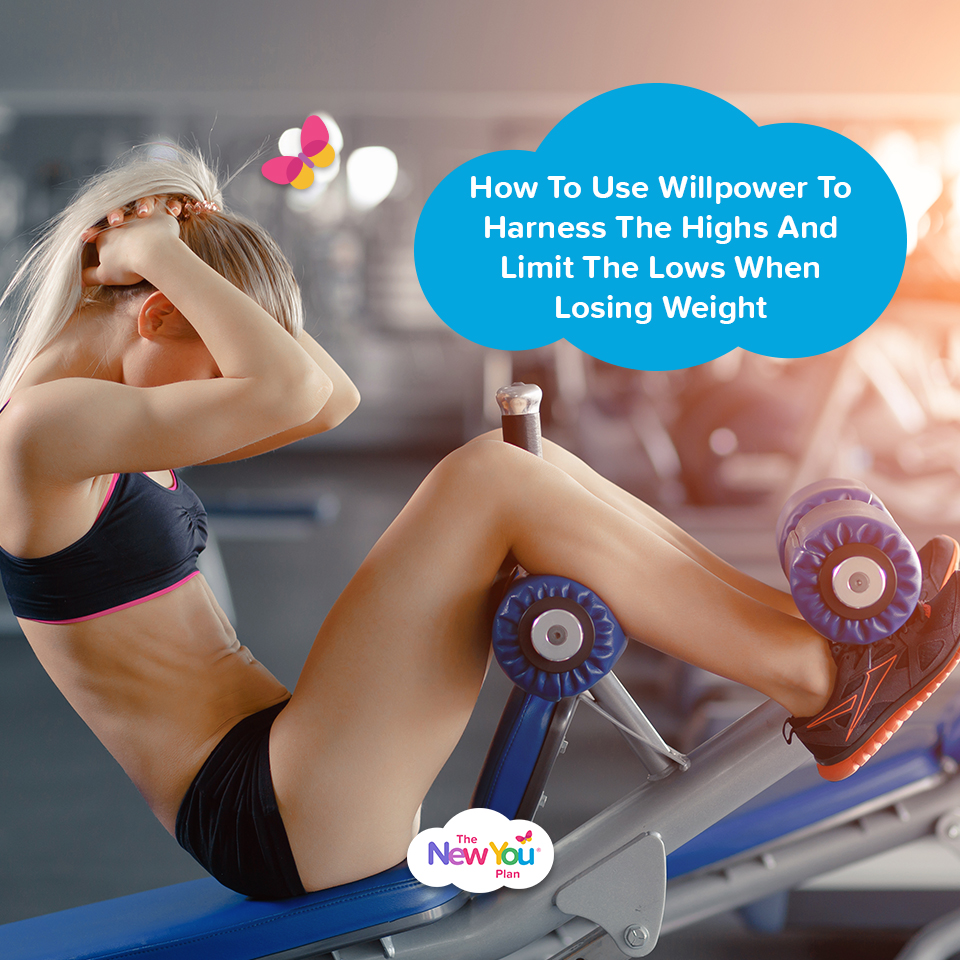
The 4 Willpower Boosts That Every Dieter Needs To Know

Lacking in willpower?! Start your diet with good intentions but you soon lose the willpower needed to keep going? You’re not alone! Here, we share our top tips to help you get your mojo back and keep it!
How often do you think about it? About food, that is. Not just what you want to eat, but also what you ate in the past or what you plan to eat in the future? Remember to include the number of times you wish you hadn’t eaten something in the past, and also what you’re planning not to eat in the future. Now add that every thought you ever have about your body image and the way you look. That includes every thought expressing contentment with how you look, as well as every thought in which you wished you looked different. Hard to measure, we know, but how many thoughts a day do you think that is?
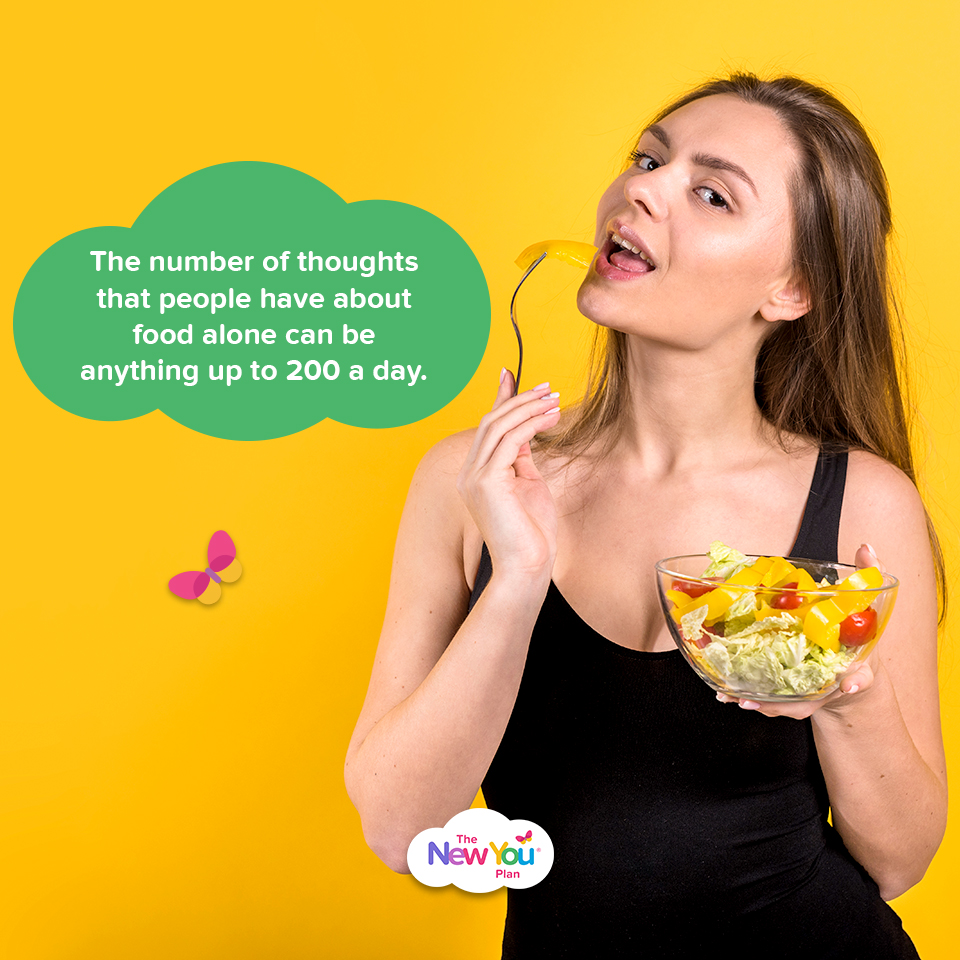
Research figures vary on this question, reporting that the number of thoughts that people have about food alone can be anything up to 200 a day. However, At New You HQ we suspect that figure may well be substantially higher, especially when thoughts about body image are thrown into the mix. For many of our customers, food is the first thing they think of in the morning and their body image is the last thing they think of at night. These thoughts stand like bookends at either end of the day, sandwiching feelings of cravings and resistance, appreciation and discomfort, satisfaction and guilt. Willpower plays a big part in our food choices, especially when following a VLCD such as The New You Plan. In an ideal dieting world we would all have ultimate self-control and be able to brush off temptations with ease but in the REAL world… we have to work at it.
With any change, whether it be a diet, a relationship or a new routine you will naturally be met with both feelings of resistance and motivation.
Typically, when starting on your New You Plan journey you are motivated, excited and perhaps a little nervous. The amazing results you achieve through following our plan mean that you experience quick wins. We all know the buzz of standing on the scales and seeing the numbers go down or trying on clothes that were previously too tight but now make you feel like Beyoncé. The little thrill you get when someone comments on how well you look and the satisfaction of knowing that following the plan is working. All major highs.
A change in routine and behaviour can also produce lows too. Perhaps you didn’t lose as much weight as you expected to which made you feel despondent. Or someone comments on how ‘you will gain all the weight back when you start eating’ which makes you question your choices. Our customers at New You talk not only about the weight they lose but also other behaviours which start to change as a result of losing weight.

They experience more confidence, their self-esteem increases and for many they start to prioritise themselves for what might be the first time ever. This alone is a huge change and brings with it a host of emotions to deal with. When you have spent most of your life making sure everyone else is ok without even considering yourself, this can stir up a lot of feelings. Our loved ones can also react in different ways to this ‘New You’. While some can be encouraging, others might initially feel threatened by the New Gorgeous You.
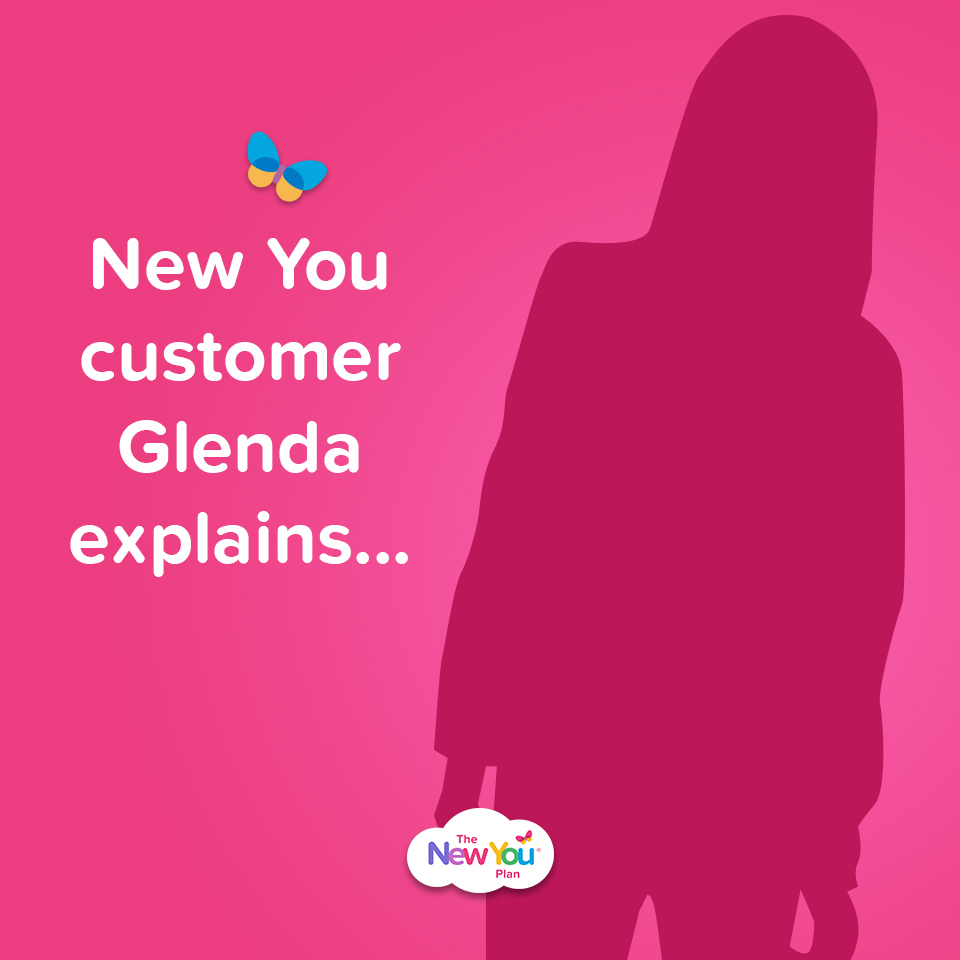
New You customer Glenda explains…
“When I started the New You Plan my husband was so supportive at first. He had concerns for my health as I was at least 4 stone overweight so when I began losing weight he was very encouraging and would help me plan family occasions around my packs.
I think I was two months into the plan and had lost just over 2 stones when he started behaving differently. I was feeling brilliant, I was wearing my jeans again and had started applying make up everyday as it made me feel good. My husband suddenly went from encouraging me on the diet to suggesting we go out for meals. He started questioning the health benefits of the plan as well which made me uncomfortable as we had both researched the diet thoroughly before I started. This really affected my mood and I started to struggle on the diet. I had started this plan to feel healthier which was what we both wanted so why the sudden change?
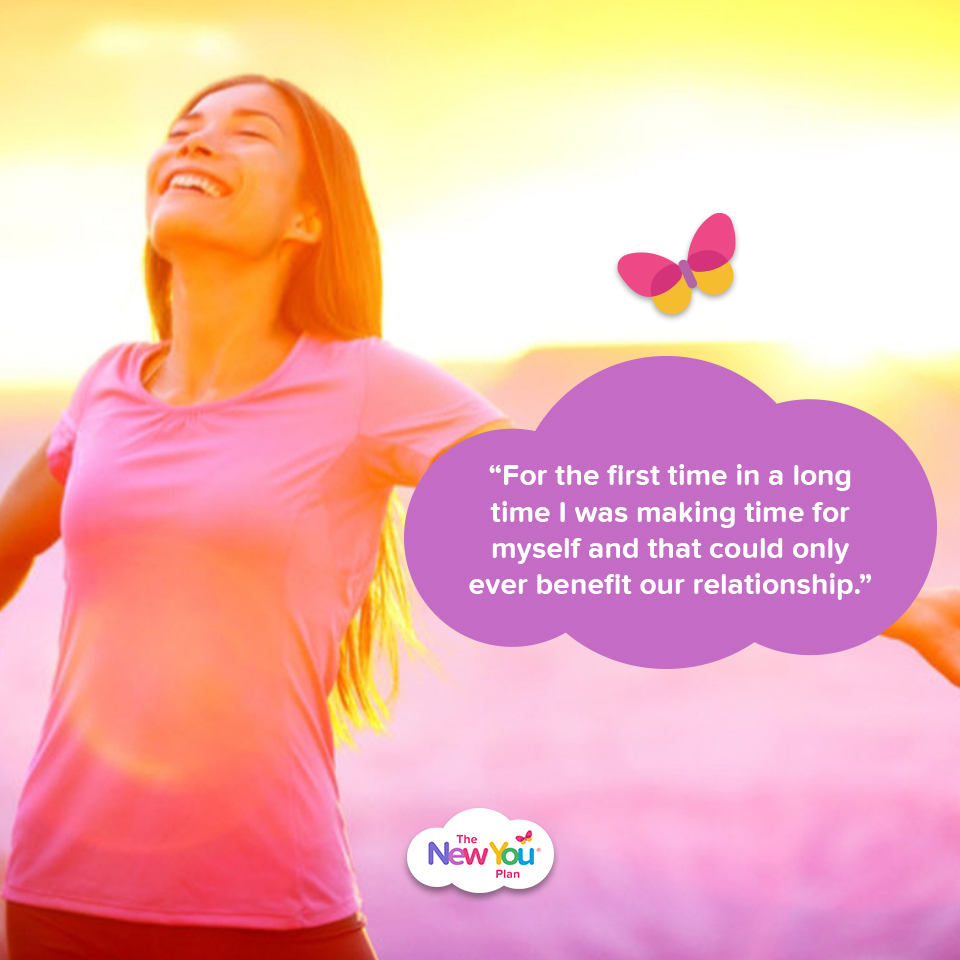
I eventually confronted my husband about his change in attitude and it all came out. While he loved that fact I was feeling so much better about myself, the fact that I had lost weight made him feel vulnerable at the same time. Would I still want to be with him when I lost my weight? Did I still find him attractive? Looking back on it, I had gone from wearing leggings and baggy jumpers with my hair in a ponytail to skinny jeans, make up and blow drying my hair every day. I explained that me feeling better about myself and taking time to make myself look better wasn’t because I wanted a new man! For the first time in a long time I was making time for myself and that could only ever benefit our relationship. Thankfully, he got it… and stopped suggesting cosy meals for two at the restaurant!”
While the highs experienced on The New You Plan can motivate us to keep going to further success, the lows can derail us quite dramatically. What can we do to to harness the highs and limit the lows? The starting point is to recognise that in this situation when we have freedom of choice, the decision of what to eat stems from our own mind. Whilst it may well be influenced by many contributing factors, the decision to choose ‘this’ food over ‘that’ comes from a thought, a feeling and the willingness to engage and follow that thought or feeling.
The mind is so powerful and when it is untrained, can be a slave to both emotion and habit, which can feel overwhelming. This is about trying to understand the root of the problem, so that you can create the conditions for positive change in the future. Food is simply the object of fascination and distraction; it is not the cause of it. It has no real power in and of itself; it just sits there, waiting to be eaten (or not eaten). The decision whether to eat is ultimately yours alone. And this is important, because if the decision is yours, then you have freedom, you have the potential for change, the potential to be happy with who you are and how you look, at a weight that is comfortable, natural and right for you.
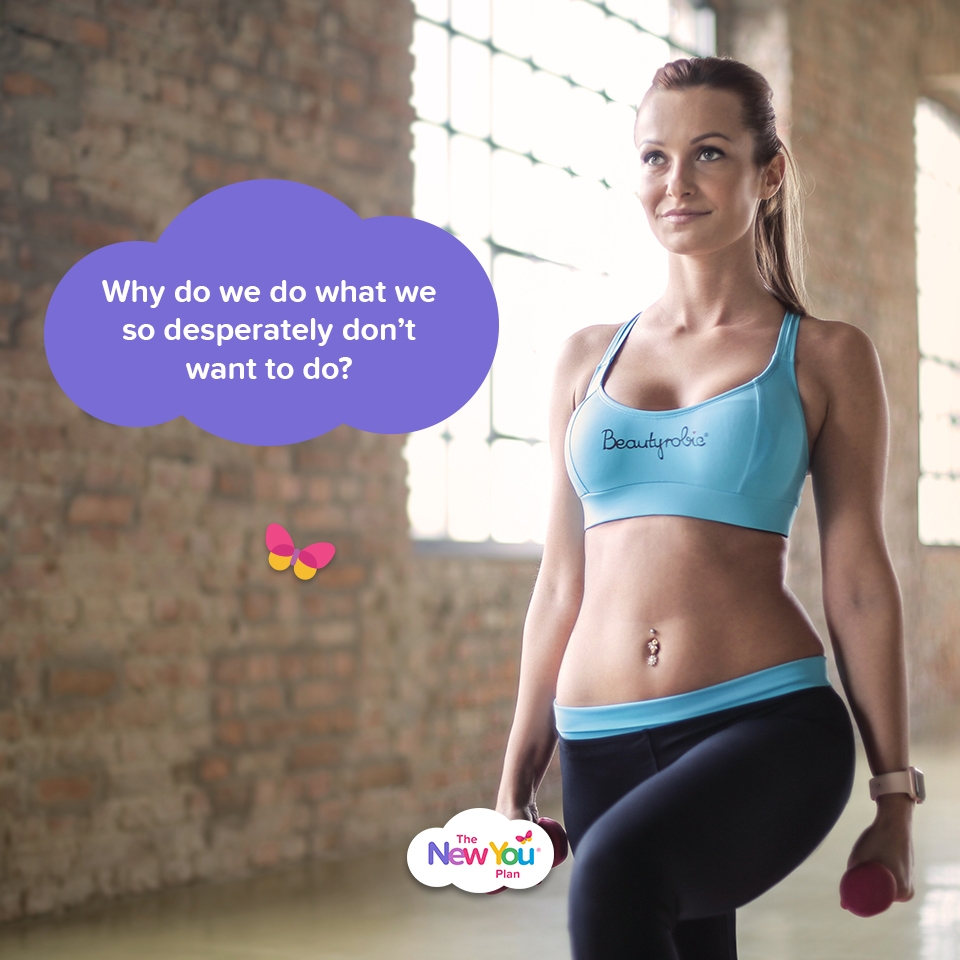
The processes at play in the mind are surprisingly straightforward, it’s just that usually everything is happening so fast that there’s not really time to take it all in. The physical action of reaching out for food and putting it in your mouth does not happen by accident. For a hand to reach out and pick up that next slice of pizza, tub of ice cream or glass of wine, it requires a signal from the brain. This signal might have been prompted by any number of thoughts, emotions, or physical sensations, and in many ways it doesn’t really matter which of those it was. The important thing is that we create enough headspace and clarity to ensure that we don’t necessarily follow that impulse. But, again, why does it happen in the first place? Why do we do what we so desperately don’t want to do? And why do we so often feel powerless to resist the urge of a fleeting emotion?
So how does that happen—summoning the willpower time and again to move beyond a temporary discomfort for a longer term goal of feeling great?
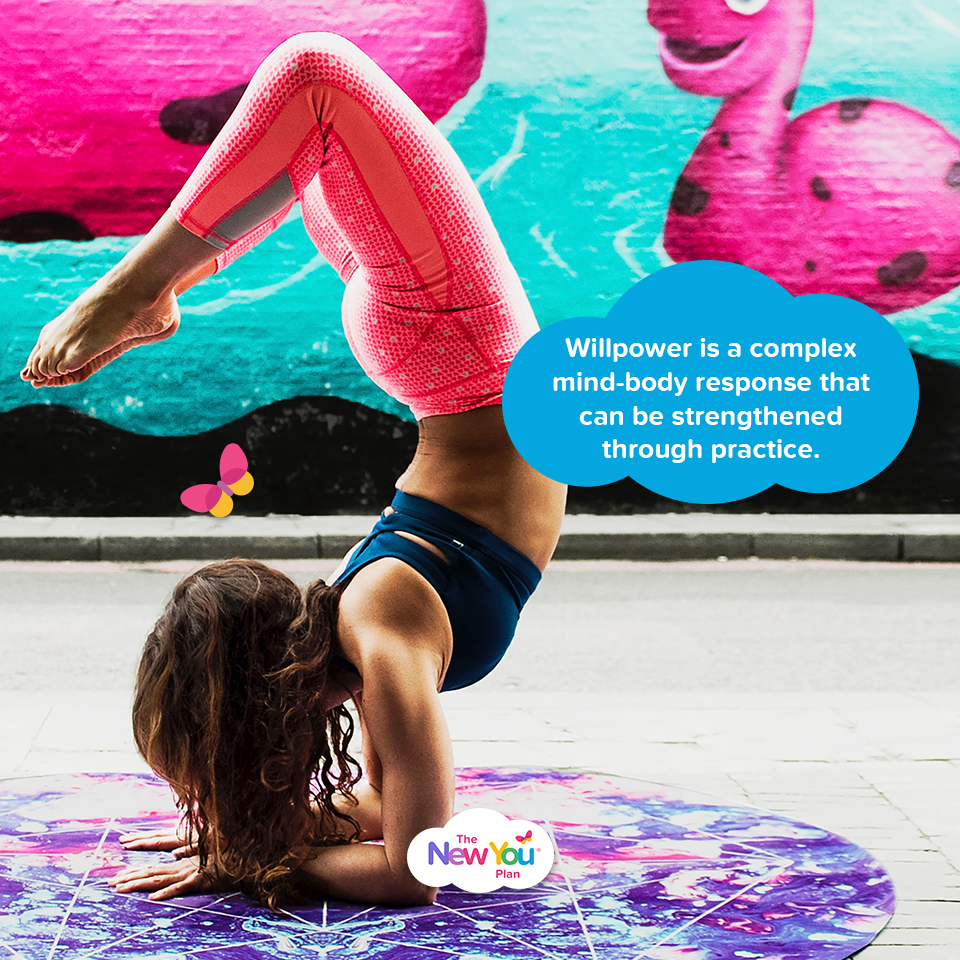
Turns out that willpower isn’t a character trait or a virtue, as once thought. Rather, it’s a complex mind-body response that can be strengthened through practice, just like a muscle. And, just like your biceps or quads, it can be trained to meet challenges head on and made stronger through practice and exercise.
When you are experiencing a dieting low, how do you summon the strength to start facing down the demon temptations in the first place?
As with any physical effort, flexing your willpower may feel uncomfortable at first, but over time becomes less of a struggle. What starts out as a “willpower challenge” (whether it’s getting to the gym, choosing to stay on plan over a pint of ice cream, even saving money) becomes easier the more you do it.
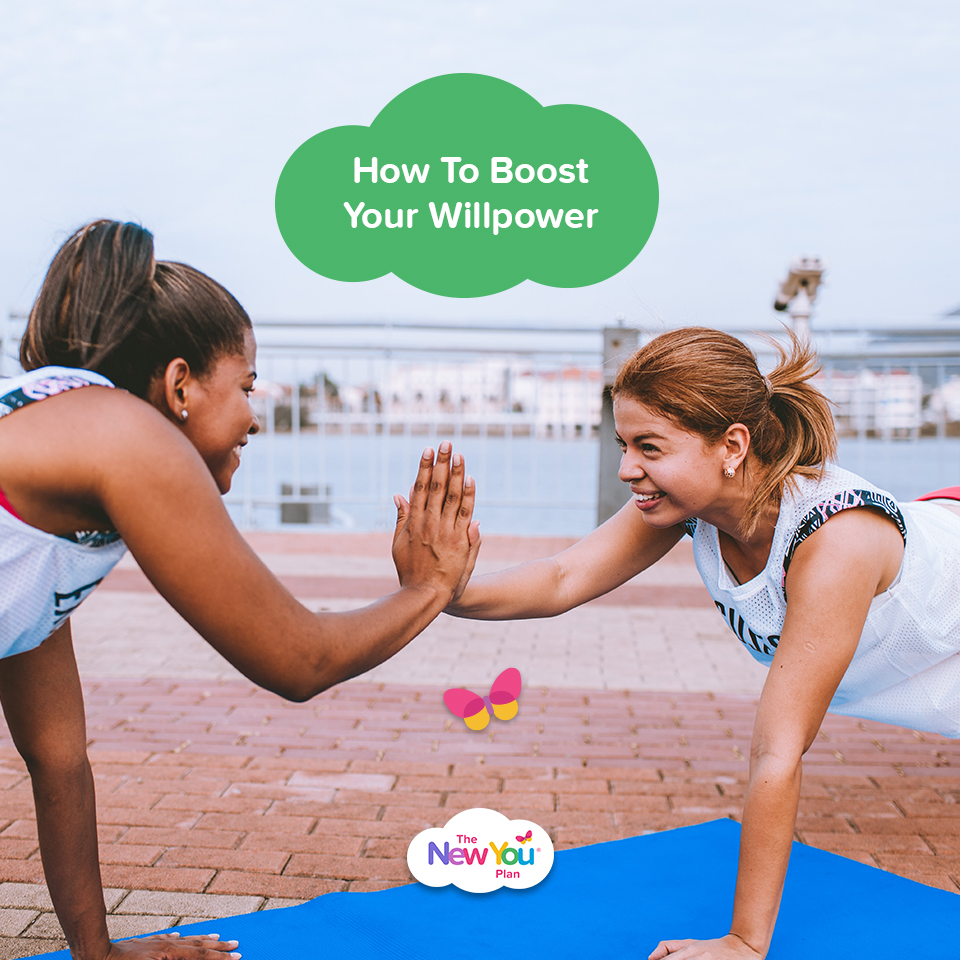
Here’s how to boost your willpower.

Get more sleep
If you’re getting less than 6 hours a night, your brain won’t be able to recruit the systems needed for impulse control. It’s heavy lifting for the prefrontal cortex, the part of your brain that keeps long-term goals (losing weight, for instance) and core values on the front burner. When your brain is sleep-deprived, it overreacts to ordinary everyday stress and temptations. It loses control over the regions of the brain that create cravings. To function thoughtfully, the brain needs to use energy well, and sleep deprivation can get in the way of that.
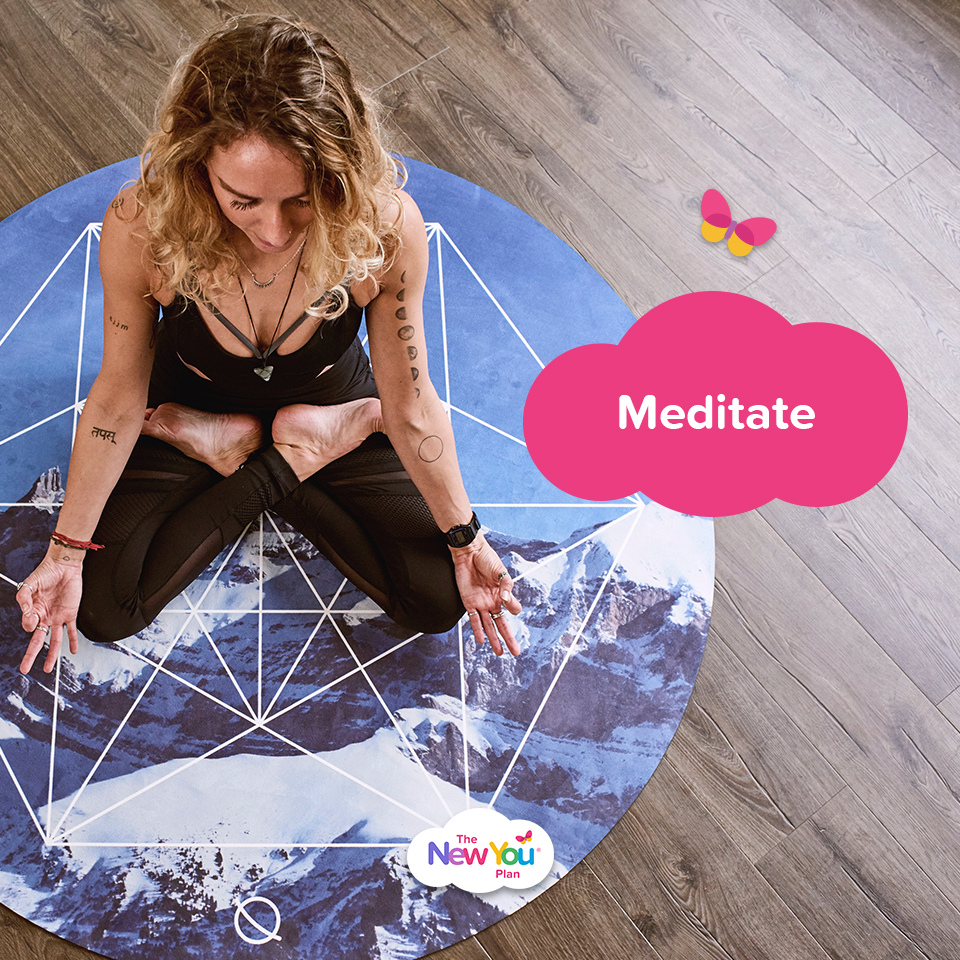
Meditate
If there’s a secret for greater self-control, the science points to one thing: the power of paying attention. How often do you eat on autopilot? Meditation is not about getting rid of all your thoughts; it’s learning not to get so lost in them that you forget what your goal is. When your mind is preoccupied, your impulses—not your long-term goals—will guide your choices.
Meditation training improves a wide range of willpower skills, including attention, focus, stress management, impulse control and self-awareness. It changes both the function and structure of the brain to support self-control. And it doesn’t take years of practice—brain changes have been observed after 8 weeks of daily meditation, for as little as 10 minutes a day.
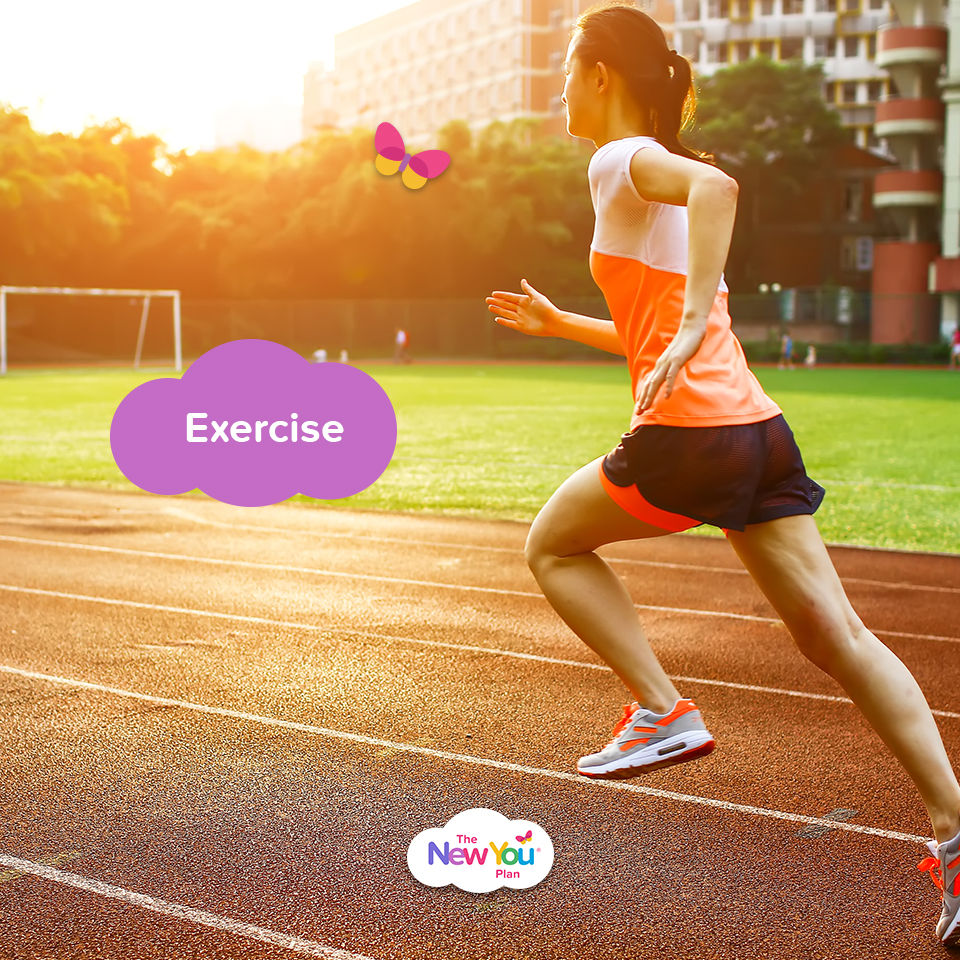
Exercise
Exercise also leads to similar changes in the brain, especially in the prefrontal cortex. Regular exercise – both cardiovascular training and mindful exercise like yoga – helps burn off stress, which gives willpower a boost. The biology of stress and the biology of self control are incompatible. Anytime we’re stressed out it’s harder to find our willpower. The fight-or-flight response floods the body with energy to act instinctively and steals it from the areas of the brain needed for wise decision-making. Stress also encourages you to focus on immediate, short-term goals and outcomes, but self-control requires keeping the big picture in mind.
Exercise as a stress management tool is one of the most important things you can do to improve your willpower.
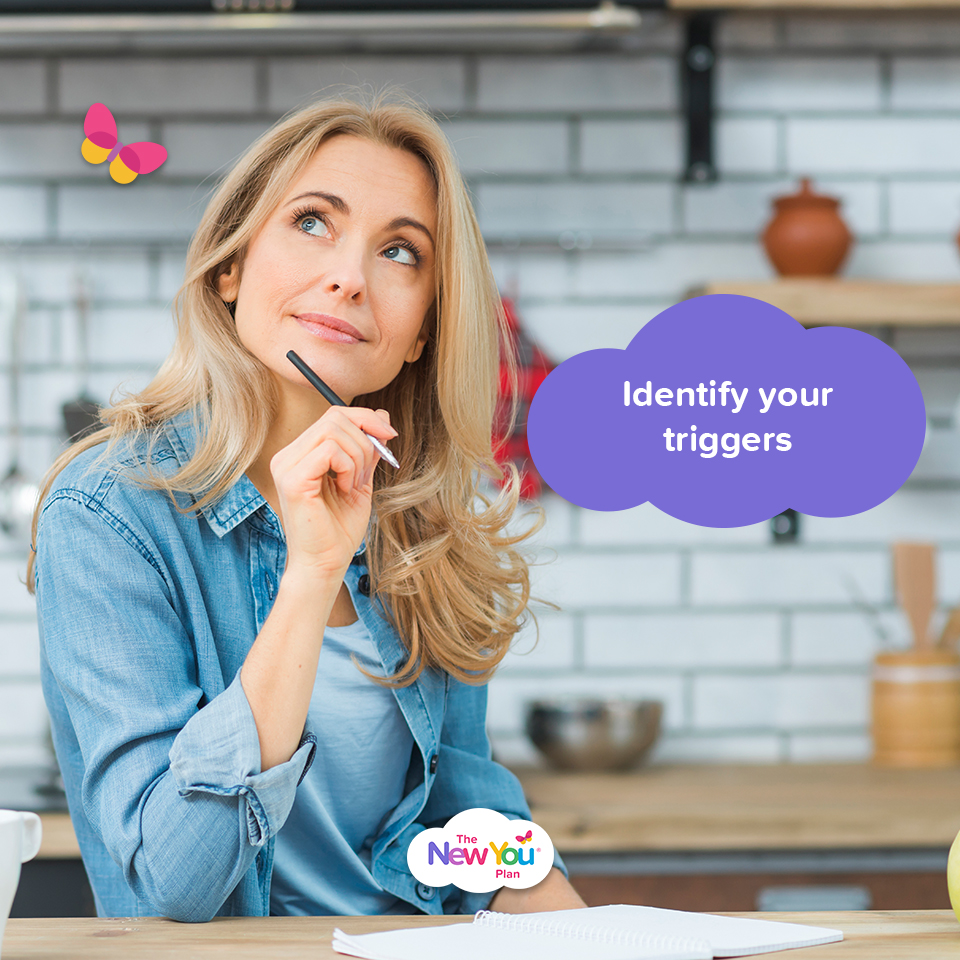
Identify your triggers
Whether it’s stress, traffic, a huge pile of washing or simply just ‘one of those days’ you will have certain triggers which make you want to reach for food. For most of us we can’t avoid those day-to-day triggers but what we can do is recognise them and have a strategy in place to deal with them. For example, if you know that you start to crave chocolate around 4pm, just after the school run, factor in a New You meal for around that time.
Adopting just one behaviour from this list can make a difference, though ironically we may think it will take a lot of…willpower: “OK now I have to force myself to sit down and meditate, or exercise.” But we don’t realise that not doing these things is part of what makes it difficult to begin.
Pushing through pays back big time. For instance, exercising regularly not only makes it easier to exercise but also to stop procrastinating, to eat healthier and to not blow entire month’s salary on a new pair of shoes. Cumulative benefits.

This Week’s Spring Transformation Challenge Task
This week’s task is all about the highs and lows of losing weight. We would love to know how you harness the highs and limit the lows while you are on The New You Plan. We want to know how you pick yourself up during the low times and how you reward yourself when you are doing great.
To enter, head over to Secret Slimmers, or email: [email protected].
On Friday, we will reveal the winner, who will be able to choose between 4 amazing prizes:
- Nutribullet
- Spectrum Make-Up Brushes
- Jo Malone Perfume
- 1 Week Bundle
Are you ready to get started on a really, really, really easy diet plan?

Getting started is the first step in your journey to a brand New You! To help you understand fully how our plan works, our Get Started page with designed specifically for people new to the plan.
Head over to our site where you’ll find tonnes of important information including how our plan works, the science behind it, loads of top tips, information on our meals, as well as real customer testimonials.
Click here to visit our Get Started page!






